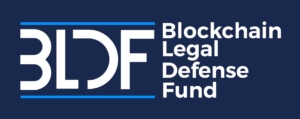Legal Ramifications of Staking and DeFi in 2024
Staking and decentralized finance (DeFi) have become key components of the cryptocurrency ecosystem, offering new ways for investors to earn returns on their digital assets. However, these activities also raise complex legal and regulatory issues, especially as authorities around the world seek to bring greater oversight to the crypto industry.
Understanding Staking and DeFi
Staking involves participating in a blockchain network’s consensus mechanism, often Proof of Stake (PoS), by locking up a certain amount of cryptocurrency to support network operations. In return, stalkers receive rewards in the form of additional tokens. DeFi, on the other hand, encompasses a wide range of financial services — such as lending, borrowing, and trading — provided through decentralized platforms that operate without traditional intermediaries like banks.
Regulatory Concerns Surrounding Staking and DeFi
As staking and DeFi have gained popularity, regulators have raised concerns about the potential risks associated with these activities. In 2024, several jurisdictions have introduced new rules aimed at increasing transparency and protecting investors in the DeFi space. For instance, the U.S. Securities and Exchange Commission (SEC) has issued guidelines indicating that staking rewards may be considered taxable income and that DeFi platforms facilitating the trading of digital assets might need to register as securities exchanges if the assets qualify as securities under federal law.
Similarly, the European Union has proposed new regulations under the Markets in Crypto-Assets (MiCA) framework that would impose strict reporting requirements on DeFi projects and require staking services to comply with anti-money laundering (AML) standards. These measures are intended to reduce fraud and protect consumers, but they also create new compliance burdens for DeFi developers and service providers.
Recent Legal Cases and Enforcement Actions
Several recent legal cases and enforcement actions highlight the growing regulatory scrutiny of staking and DeFi activities. In early 2024, the SEC filed a lawsuit against a DeFi platform for allegedly offering unregistered securities in the form of governance tokens. The platform’s operators were accused of misleading investors about the risks associated with staking and failing to register the tokens as securities.
Another notable case involves the Internal Revenue Service (IRS) issuing guidance on the tax treatment of staking rewards. The IRS clarified that staking rewards should be reported as income when received, based on their fair market value at that time. This ruling has significant implications for crypto investors who participate in staking, as it requires them to track and report their earnings accurately.
Implications for Investors and Developers
The increasing regulatory focus on staking and DeFi has several implications for investors and developers in the crypto space. For investors, understanding the legal and tax obligations associated with these activities is crucial to avoid penalties and ensure compliance. This includes staying informed about regulatory changes, keeping detailed records of transactions, and seeking professional advice when needed.
For developers, the evolving regulatory landscape presents both challenges and opportunities. On one hand, stricter regulations may increase compliance costs and limit the ability to innovate freely. On the other hand, clear regulatory frameworks can provide legitimacy to DeFi projects and attract more institutional investors. Developers must navigate this complex environment carefully, balancing the need for compliance with the desire to push the boundaries of financial innovation.
Staking and DeFi are at the forefront of the cryptocurrency revolution, offering new ways to engage with digital assets and participate in decentralized networks. However, these activities also pose significant legal and regulatory challenges that must be carefully navigated. As authorities continue to tighten regulations around staking and DeFi in 2024, staying informed and proactive will be essential for investors and developers to thrive in this rapidly evolving space. By understanding the legal ramifications and adapting to the changing regulatory landscape, participants in the crypto ecosystem can position themselves for long-term success.






Leave a Reply
Want to join the discussion?Feel free to contribute!